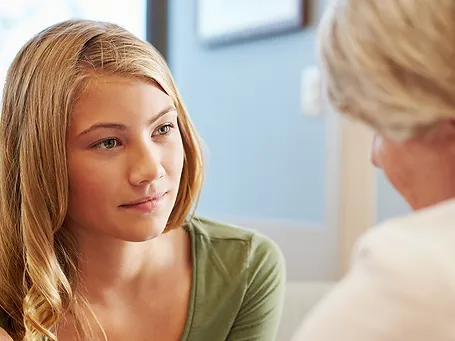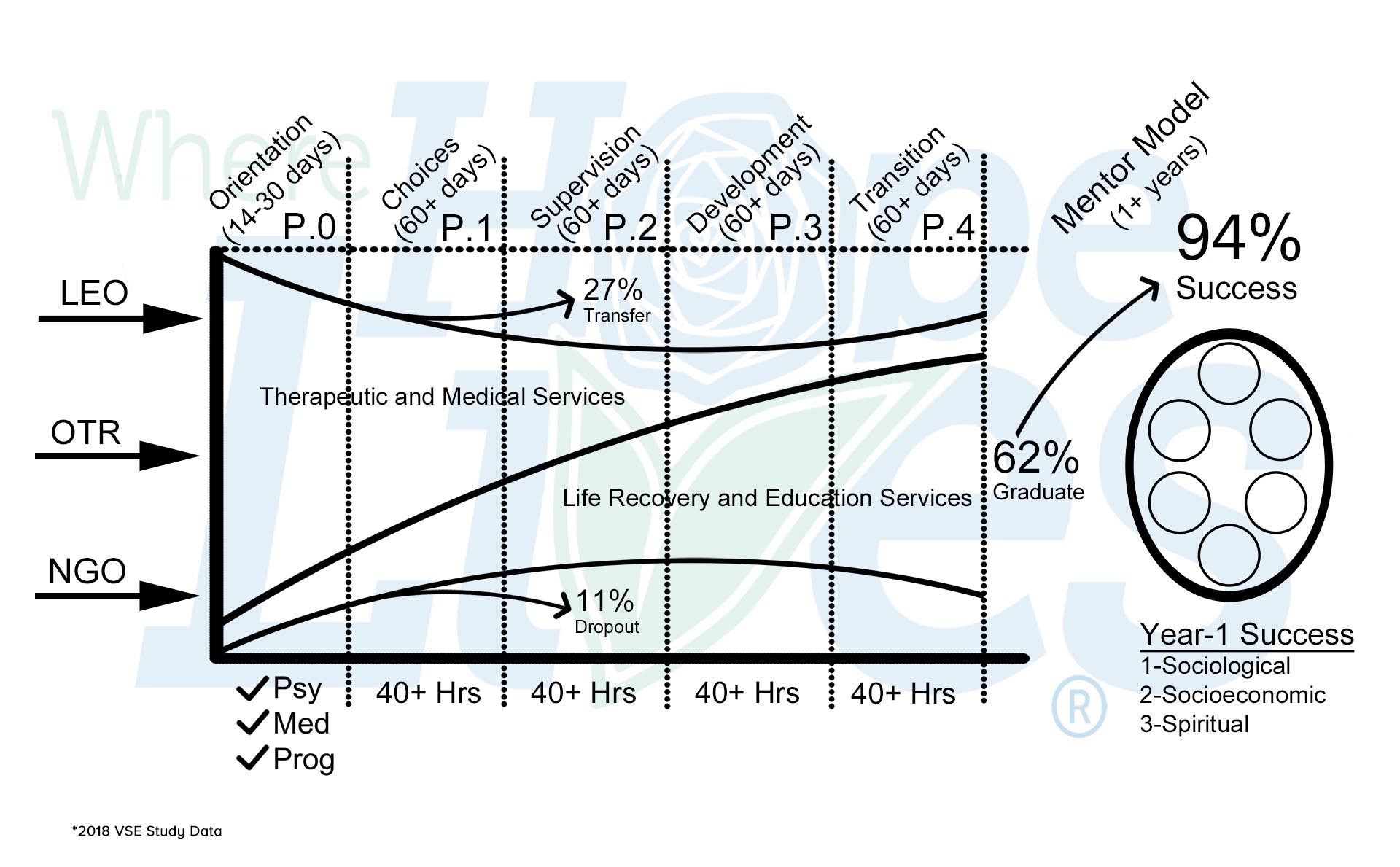In 2008, while doing inner-city outreaches to reach at-risk youth, our Executive Director Brian Steele and his wife Skye Steele found this 13-year-old being trafficked on 51st Avenue in Phoenix. It changed their lives forever.
After getting her the emergency medical help she needed, they scrambled to prepare a room for her at Where Hope Lives and welcomed her in.
Brian and Skye now live every day on a mission to stop human trafficking. This girl they helped in 2008 has now graduated college, is married and they are STILL in contact with her.
This was the start of the young adult human trafficking recovery program at Where Hope Lives. Since opening in September of 2008, we have served over 900 survivors between the ages of 17 and 26 years old.
The Where Hope Lives Young Adult Program is a multi-faceted program specializing in trauma healing from young adult sexual exploitation (CSE).

Where Hope Lives Young Adults operates from a sprawling 57,000 square-foot space that is designed to provide holistic care for survivors. This space includes 16 safe beds for boys and young men, 97 safe beds for young women aged 17 to 26.
The facilities are equipped with an onsite medical center, trauma-informed sensory modulation rooms, nutrition and culinary arts programs, a chapel for spiritual nurture, behavioral health care services, a trauma-informed high school, a physical wellness and wholeness center, eye care and dental care clinics, and a career training and job placement program.
These facilities enable Where Hope Lives to address the diverse needs of survivors in a supportive and nurturing environment.
The Where Hope Lives Young Adult program serves teens and young adult women and men who have fallen victim to sex trafficking.
Young adults work through an in-depth program to help address the trauma they have experienced from the abuse of human trafficking.
Estimated length of services is 9 months to 2 years. The individual’s progress of treatment goals and objectives, as well as immediate and/or additional needs assessed since admission, are taken into consideration.
The readiness of individual is the dominate factor and program length times follow their own individualized healing path.
Our Family Systems Care Model of Service contributes to some of our highest success rates. This model seeks foremost to create the atmosphere of a nurturing and caring family. Many of our survivors have never known a healthy family home life and yet we’ve found that it is one of the most powerful tools we have in truly meeting the deeper needs of survivors. While healthy professional boundaries must always be maintained, our staff are strategic about working to genuinely relate to the survivors on a level that is very real, open, honest and forthcoming. An additional focus on forgiveness and forever-family helps survivors get through difficult life situations both during and beyond the program.
We’ve found that a trauma informed approach is one key to meeting the therapeutic healing needs of the survivors. Other keys to success include a broad spectrum of behavioral health and medical health care such as EMDR, group therapy, individual therapy, equine therapy, K-9 therapy, art therapy, emotion regulation therapy and PTSD counseling. All of these services are conveniently offered right on campus in the Halle Healing Center and the Williams Eye Care Center. At no cost to the survivors, all of the therapeutic and medical services are provided by Phoenix Children’s Hospital, Dignity Health, Life Health and Wellness and Williams Eye Care.
For human trafficking survivors the first step is always safe and secure housing. We provide safe housing to 97 young women (plus up to 12 babies) and 16 young male survivors in luxury suite apartments that we call the Dream Rooms. We’ve found that esthetically beautiful space for survivors to live in helps build trust and helps them want to stay. The Dream Rooms also help them feel valued and increases their long term success after the program. Additionally a 24-hour trauma informed security team facilitates a camera and security system to provide for the safety of all of the survivors.
We’ve found that faith plays a large role in the lives of many of our survivors as they try to process the past abuse and as they work through their healing; physically, emotionally and spiritually. While our faith based services are not required of the survivors in our program, most survivors do participate in Church services and bible studies and have expressed that they experience deep healing by doing so. The campus offers licensed pastoral nurture care as well as chaplain services that are specially equipped to help meet the spiritual needs of human trafficking survivors.
We believe education is key to our care model and we’re proud to have a fully accredited high school right on our campus. Survivors can get their high school diploma and get college preparatory classes right on campus. We additionally work with local colleges like Grand Canyon University, Arizona State University, Carrington College, Art Institute, Argosy University and Brookline College for scholarships.
We’re proud to report that our 2022 Quality Assurance Report showed that program graduates had a 94% Success Rate that held for at least one year after they completed the program. We measure 15 variables in 3 key areas of life to determine our success rate. This rate came by way of a 62% program completion rate, a 25% transfer to higher level of care rate, and a 13% drop out / relapse rate.






















Where Hope Lives is a dba of City Help Inc of Phoenix and is committed to helping children and young adult human trafficking survivors heal.
How can a 13-year-old girl put the pieces of a broken life back together? Is there any hope of her childhood being restored? What does a day in her life as she heals look like? Sign up to join with these girls as they fight for the restoration of their lives.